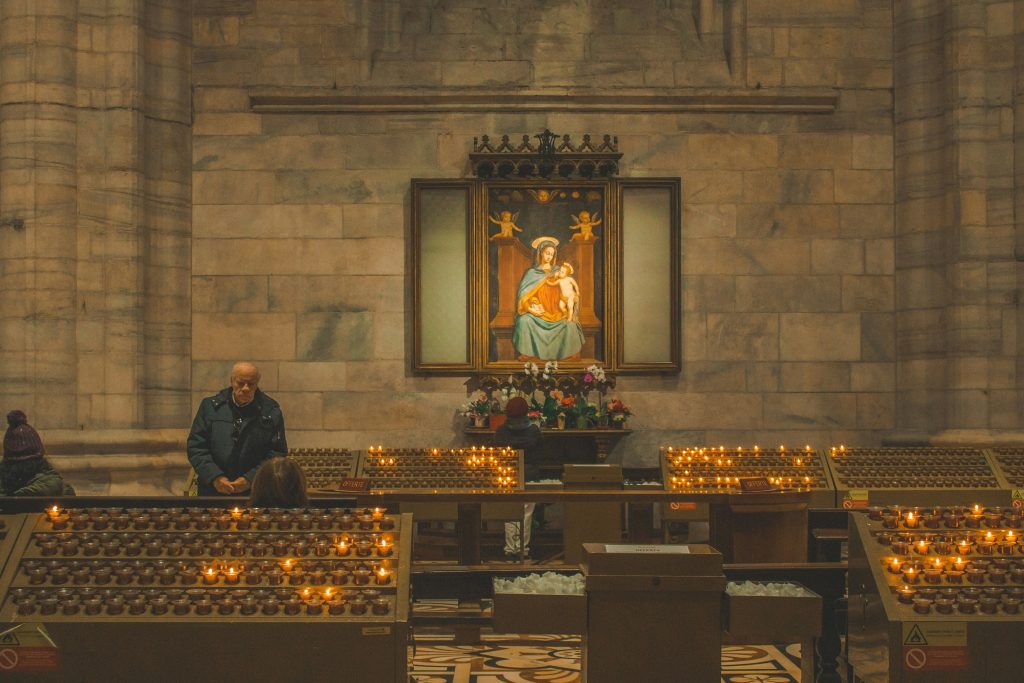[FR] Evangelical spirit and European integration
Speech by Jacques Delors at the conference held at Strasbourg Cathedral on 7 December 1999.

The subject proposed by Monsignor DORÉ is impossible for me to address. I should have reacted sooner, I think. But then the theme emerged as a challenge and struck me as a reminder of my own statements.
For when I was President of the European Commission, I was led to call for a soul for Europe, convinced as I am of the imperative need to restore meaning to collective action.
I added: ‘If, within ten years, we have not succeeded in giving Europe a soul, a spirituality, a meaning, we will have lost the game.’
These words have often been repeated, most recently by the Archbishop of Besançon, Lucien DALLOZ.
In his brilliant and profound analysis, I found a link between the spirit of the Gospel and European integration: the soul cannot flourish without the body, and the spirit of the Gospel inspires human actions to a greater or lesser extent. Monseigneur DALLOZ illustrates this in the following terms: “The way in which the great initiators wanted to undertake European construction is also a lesson: in order to build peace for the good of mankind and realise the highest ideals, they committed themselves through actions. A true spiritual dimension of Europe is no more a matter of grand words or grand sentiments today than it was yesterday.If the spiritual is itself carnal, then the carnal must also be spiritual in some way.”
Encouraged by these words, I would like to put forward the hypothesis that European integration is undoubtedly the only great collective adventure that has been proposed to our peoples in this second half of the 20th century. Its progress has never been like a long, peaceful river. We have experienced periods of dynamism and even enthusiasm. We have languished through long phases of stagnation.
We have feared, but we have struggled to overcome acute crises resulting from deep divisions over the European project or the exacerbation of national egoisms.
Finally, and most importantly, faced with the failure of proposals that clearly led to a political Europe, we had to take the complex and tortuous path of integration through the economy. This came with a double risk: that technocracy would provide ammunition to those who reject the unity of our continent, and that the ultimate goals of the project, which have always been political, would be obscured.
There has been no shortage of criticism from those who saw the path taken as encouraging the prevailing materialism or as continuing the geopolitical decline of the ideal Europe they dreamed of.
This concern has been reflected on several occasions in documents issued by the Church. I have chosen one, taken from LINEAMANTA, the text drawn up in 1998 by the VATICAN to prepare the Synod of Bishops of Europe: ‘As the fateful date of the third millennium approaches, while rich in signs of faith and witness, Europe feels all the wear and tear that history, with its various tensions, has imprinted on the deepest fibres of its peoples and which is often a source of disappointment’.
It was precisely to counter this wear and tear, and thus decline, that the fathers of Europe rose up, endowed with a vision of the future, their hearts full of understanding and openness to others, but also having found the keys to embark on the long process that must lead to the unity of Europe in its diversity.
While the workers were busy on the construction site, while Europe was cut in two by a disastrous decree of history, the world was not standing still. It was undergoing a change in values that was causing alarm among spiritualists.
It was marked by the Cold War, and as soon as it was freed from this kind of cemetery peace, it was confronted with new risks to human dignity and peace. It lived and still lives under the influence of a dominant economism that is leading us towards a globalisation whose processes we are struggling to control.
For all these reasons, it is not legitimate to unilaterally condemn the materialism of a Europe in the making. Rather, we should analyse the world as it is, or, if you prefer, the spirit of the times, the tensions that are affecting societies and individuals, which I am inclined to believe are not due to the emergence of European integration. The latter, moreover, provides answers, albeit incomplete and not always satisfactory, to the questions raised by the spirit of the times. It is in this sense that we can approach our central theme: how to embody the demands of the evangelical spirit in this collective adventure.
But we are only halfway there. We have left the shores of old Europe, undermined by civil wars and threatened with losing all influence, in an attempt to reach the other shore, that of a Europe that is both powerful and generous, exemplary in its internal modes of organisation and relations. And the world, for its part, has moved away from the post-war shore and is heading, in a chaotic manner, towards the shore of the global village, a product of globalisation. Our ambition therefore remains to say no to spiritual and material decline and to rediscover the right compass, the true meaning of human activity.




